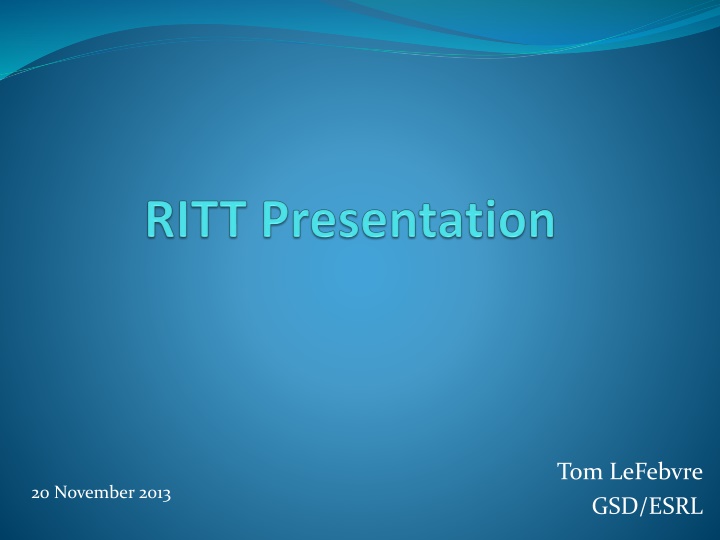
Enhancing Forecasting Capabilities: FDSE, Task Development, and Grid Monitoring
Discover the evolution of the Forecaster Decision Support Environment (FDSE) into Environmental Intelligence Management Capability, along with the tasks proposed by GSD for Situational Awareness and enhanced forecast grid monitoring tools.
Download Presentation

Please find below an Image/Link to download the presentation.
The content on the website is provided AS IS for your information and personal use only. It may not be sold, licensed, or shared on other websites without obtaining consent from the author. If you encounter any issues during the download, it is possible that the publisher has removed the file from their server.
You are allowed to download the files provided on this website for personal or commercial use, subject to the condition that they are used lawfully. All files are the property of their respective owners.
The content on the website is provided AS IS for your information and personal use only. It may not be sold, licensed, or shared on other websites without obtaining consent from the author.
E N D
Presentation Transcript
Tom LeFebvre GSD/ESRL 20 November 2013
What is FDSE? The NWS Weather Ready Nation Roadmap outlines concepts for the future of forecasting in the NWS Initially labeled Forecaster Decision Support Environment (FDSE), it has been renamed to: Environmental Intelligence Management Capability Among the major concepts, FDSE is to enhance Situational Awareness Forecast Confidence Impact-based Decision Support Services (IDSS)
Task Development GSD proposed a number of tasks to SSDs and three were selected Forecast Grid Monitor Short-term Forecast Update Tool Enhanced Ensemble Capabilities for AWIPS II
Forecast Grid Monitor Purpose: Situational Awareness Allow forecasters to better understand the state of the forecast as compared to Observations Numerical Guidance Forecasts Consensus Forecasts
Forecast Grid Monitor A framework that compares combinations of GFE forecast grids: Gridded Analyses of Observations: RTMA MSAS Obs grids Gridded Forecasts: Official, Fcst Downscaled Numerical Guidance Forecasts Consensus forecasts
Forecast Grid Monitor How it works Reads GFE grids (observational and forecast) Performs some operation to compare grids for the same valid time Displays the results of that algorithm
Grid Monitor GUI Menu Options Add / Remove weather elements Past / Future Guidance Sets data sets to compare Weather Element Labels Identifies weather element Time Scale Time in hours from now Grid Comparison Visualizations Graphical representation of the algorithm results
Grid Comparisons Grid Comparisons are designed to be very flexible Existing algorithms can be modified New algorithms can be created Each algorithm has access to raw data: Two grids to compare The Edit Area over which to do the comparison The rectangle in which to draw/paint Algorithms can draw: Graphical Objects Text
Grid Comparisons Grid comparison algorithms can be customized for particular weather elements Users only need to add the algorithm and restart the Grid Monitor (no configuration required) Each element can use a different comparison algorithm Seeking ideas for new algorithms
Grid Monitor Drilling Deeper Grid Monitor allows forecasters to also investigate comparison details Histogram Plots overlaid to reveal bias Error Histogram Histogram of error grid Scatterplot X vs. Y plot (e.g., Fcst vs. Obs) Difference Grid Displays in GFE to show where differences are greatest
Grid Monitor - Future Work Currently gathering feedback from some field offices: Allow for display of single weather element from many sources to view model performance Display models vertically instead of weather elements Allow grid comparisons to calculate areas of predicted watch, warning, and advisory criteria Plot some text summary of grid comparison
Grid Monitor Thanks for listening! Questions? Comments? Discussion?
